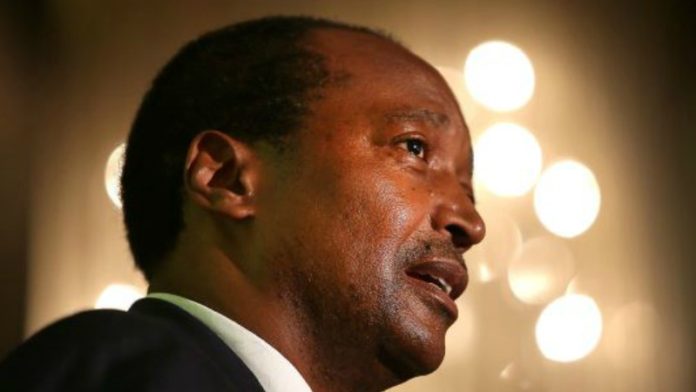
IT would appear that African Rainbow Minerals (ARM) executive chairman Patrice Motsepe gets a warm, fuzzy feeling from his group’s stake in Harmony Gold mainly because of its exposure to copper and its historic link to the creation of ARM.
But, in terms of direct financial benefits it seems the only thing he has in mind for the Harmony stake is maybe to use it as security to raise debt finance for ARM.
That’s more or less what emerged from Motsepe’s characteristically obscure answer to a pointed – and pertinent – question from HSBC mining equity analyst Leroy Mnguni at last week’s presentation of ARM’s results for the year to end-June.
Mnguni wanted to know whether it would not be more beneficial for ARM to monetise its Harmony stake and invest the capital into assets that ARM could benefit from directly in terms of earnings and cash flow. He pointed out the problem with the Harmony stake is that “the benefit does not carry through to your earnings”.
The amount involved is material. At the current price of around R160 a Harmony share ARM’s 12.1% stake in the gold producer is worth around R12bn.
Mnguni’s question is even more relevant now that Harmony is actually making money hand-over-fist from current sky-high gold prices, but is not paying it out to shareholders in decent dividends.
Instead, Harmony is holding back large amounts of cash to pay for its various planned expansions. So even though the business is booming ARM is still not seeing much material benefit in cash flow.
It’s a key issue when trying to assess ARM’s business fundamentals and similar questions have been asked before by other analysts who got the same runaround that Mnguni was subsequently to receive from Motsepe.
Mnguni’s hopes must have been raised when Motsepe acknowledged in his initial reply that “it’s a very, very important question and the point you raise is absolutely correct”. Motsepe also added it’s one that ARM has been looking at “for the last – I don’t know – 15 years”.
But, if he thought this would lead to some direct answers from Motsepe on the future of the Harmony stake, he was to be disappointed.
“What is in the best interests of our shareholders?” Motsepe asked rhetorically. “Do we sell it? Do we hold onto it? We have to do what is in the best interest of our shareholders. If it’s in the best interests of our shareholders to sell Harmony we will do that.”
Sentimental ties
Motsepe is the non-executive chairman of Harmony and, interestingly, he told Mnguni that ARM’s role in Harmony was “significantly more than just a passive role.
“Harmony was a merger with our company, ARMGold, which laid the foundation for African Rainbow Minerals and Harmony. So we are a very long-term – and there are also some issues about being an anchor – shareholder.
“We are an active participant in Exco – we make fundamental inputs on the operations and how they are run. The bottom line for us on Harmony is we are enormously excited about Harmony’s huge investments in copper. Harmony got into copper because of us.”
That actually opens up another can of worms.
Should a 12% shareholder have that kind of direct influence on Harmony? Is that in Harmony’s best interests particularly when it cannot count on that shareholder in times of need? In 2020 ARM declined to follow its rights in a R3.5bn share issue held by Harmony.
“We don’t fall in love with any investment. You fall in love with profitability; with its value creation capacity for shareholders; with your duty and commitment to create maximum value for shareholders,” said Motsepe.
He then swiftly ended the meeting.
So now you know. You have to wonder if Motsepe is more lucid when he meets significant ARM shareholders outside of public forums for in-depth briefings. I just can’t see investment managers of the calibre of Allan Gray’s Sandy McGregor letting him get away with this obfuscation.











